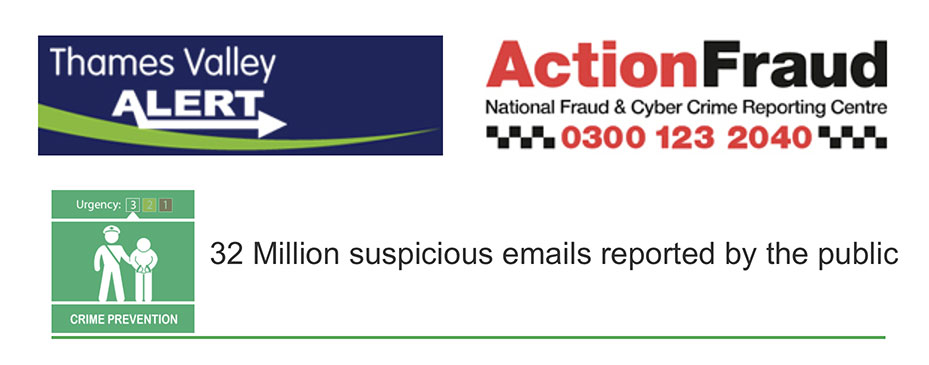Some impressive stats out of Action Fraud today: New Data Reveals Over 32 Million Suspicious Emails Reported to SERS (Suspicious Email Reporting Service), with more than a third of these emails being reported in the last year alone, according to recent figures.
These reports have resulted in the removal of over 329,000 website addresses by the National Cyber Security Centre. Action Fraud, the national fraud and cybercrime reporting service, initiated a nationwide phishing awareness campaign on 24 June 2024, marking the highest level of reporting since SERS was established. The latest data indicates a 44% year-on-year increase, with nearly 11,611,400 reports made to SERS in 2023, up from 8,074,200 in 2022.
In addition to emails, a substantial number of text messages have also been reported to 7726. In March 2024 alone, more than 60,000 malicious websites were taken down following reports made through 7726. This free service, offered by mobile network providers, allows customers to report suspicious text messages to help prevent others from receiving them.
How do I report fake emails and text messages?
Emails
- Received an email that doesn’t feel right? STOP! Always report suspicious emails by forwarding them to: [email protected]. Send emails to this address that feel suspicious, even if you’re not certain they’re a scam – they will be checked.
Text Messages or calls
- Always report suspicious text messages or scam call numbers, free of charge, to 7726. Your provider can find out where the text came from and block or ban the sender.
- To report a scam text, forward it to 7726 (we saved this number in our phone as ‘spam’) and then send the sender’s number when prompted.
- To report a scam call, simply text 7726 with the word ‘Call’ followed by the scam caller’s number.
Claire Webb, Deputy Head of Action Fraud, said:
“When fraudsters go phishing for valuable information, anyone could be a target. They will hook an unknowing victim with a genuine-looking email, in a bid to get them to share personal information, or bank details.
“Year on year, the amount of people reporting phishing emails and texts is growing. Action Fraud is urging everyone to be extra vigilant of suspicious-looking emails landing in their inbox, which could contain malicious links leading to unknown websites.
“Remember, if you think you have received a phishing email or text message, make sure you report it. You can forward emails to [email protected], or forward spam text messages to 7726.”
What happens if I’ve been scammed?
If you’ve lost money or provided financial information as a result of a phishing scam, notify your bank immediately and report it to Action Fraud at actionfraud.police.uk or by calling 0300 123 2040. In Scotland, call Police Scotland on 101.
What else should I be doing?
- If you have any doubts about a message, contact the organisation directly using the contact details on their official website.
- Do not use the number or web address in the message. Your bank, or any other official source, will not ask you to provide sensitive information by email.
- Learn to use Alias phone numbers and emails
- Be careful with your data and the tick boxes on forms.
- Listen to an HMRC Scam Call + Key things to listen out for + What to do when you get a scam caller
- Learn about 10 scams you may see in London





























